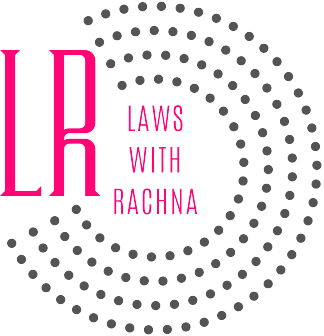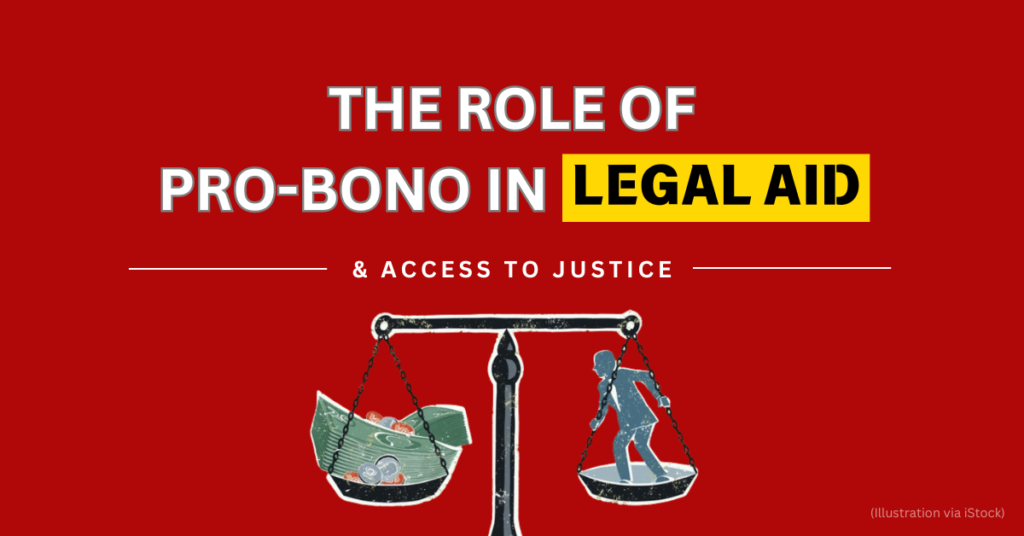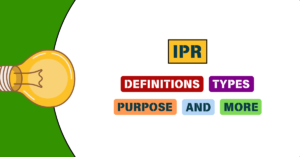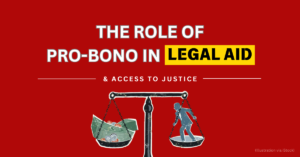This article has been written by Rahul Bansiwal, a 5th Year B.A. LL.B. (Hons.) student at University Five Year Law College, University of Rajasthan
Meaning and Context
In India, the National Legal Services Authority and State Legal assistance Services authorities, which are widely dispersed across the nation, are largely responsible for providing free legal assistance and services. However, as the population’s legal needs continue to expand, the legal profession must make a significant contribution. The idea of pro bono legal services has not really taken off in the nation and is still more of an ad hoc, individualized practice without an institutional framework. The Latin phrase “pro bono publico,” which translates to “for the public good,” is where the term “pro bono” originates. Many solicitors offer important legal counsel and assistance to low-income and under served clients without charging a fee.1
A system for free legal services was established in India in April, 2017. The programme, a Department of Justice initiative, strives to fulfil both the State’s constitutional duty to provide “Free Legal Aid” to everyone and the Department’s vital responsibility of increasing “Access to Justice” for society’s most vulnerable groups. The goal of the plan is to create an institutional setting that will promote India’s pro bono tradition. The programme would make it simpler to offer high-quality legal assistance to underprivileged communities while simultaneously making sure that the attorneys who volunteer their time and skills for this public benefit are properly recognized for their efforts.
Objective and Scope of Pro Bono Services
- To promote the provision of pro bono legal services by solicitors and other legal professionals
- To recognize the pro bono work done by these individuals
- To develop a database of solicitors’ vital information for employment in the relevant sector.
The database’s creation will help the Department of Justice locate attorneys who offer pro bono services. The Department of Justice could use the information to establish a connection between a qualified pro bono lawyer with knowledge or interest in the relevant subject and a person entitled to legal services under The Legal Services Authority Act, 1987. Additionally, the government has suggested using pro bono legal services rendered by solicitors as a criterion for selection to suitable positions. The database will thus be used by the government as an extra instrument to assess the quality of the legal aid services provided.2
Constitutional & Statutory Provisions regarding Pro Bono Service
Article 14 and the Preamble of the Constitution both place a strong focus on equal justice. Every person should have the chance to seek justice in order to maintain true equality in the legal system. Economic inequality can occasionally make it challenging for the poor to seek justice. Free legal assistance for the weak and destitute is necessary in these situations to maintain real equality of justice.
Articles 38 and 39A of the Constitution of India are notable. According to Article 38(1), By developing and preserving a social order that ensures social, economic, and political fairness in all spheres of national life, the State must seek to advance the welfare of the people.
According to Article 39A3 The State is obligated to see to it that the administration of justice advances equality of opportunity. It is especially crucial to offer free legal assistance through appropriate legislation, programmes, or other ways in order to ensure that no citizen is denied the opportunity to pursue justice due to financial or other constraints.
The guarantee of the right to life and personal liberty under Article 214 includes an implied right to free legal representation or assistance, which is a fundamental element of a reasonable, fair, and just procedure. This fundamental privilege applies to any defendant who is unable to afford legal representation owing to financial hardship. If the circumstances of the case and the needs of justice require it, the State must provide an accused person with legal representation, provided the accused person does not object.5
Criminal Procedure Code of 1973 also incorporated this ideology of Free Legal Aid under section 304 Cr.P.C.6 There is a provision that Legal aid has to be provided to the accused at the expense of the State. When an accused person is not represented by a pleader during a trial before the Court of Session and it appears to the Court that the accused does not have enough money to hire a pleader, the Court shall appoint a pleader for the accused’s defence at the expense of the State.7
Important Judgments regarding Free Legal Aid
In State of Maharashtra v. Manubhai Pragaji Vashi8, the Supreme Court has observed that the State has a responsibility to fund grants for accredited private law schools. In order to provide free legal assistance, the nation needs skilled lawyers, which can only be done if there are enough law schools with the required infrastructure, qualified faculty, and staff.
In the case of Sukhdas v. Union Territory of Arunachal Pradesh9, the Supreme Court has made it quite plain that failing to provide an accused individual with free legal representation at the State’s expense, unless the accused decides to decline, would render the trial inadmissible. This is now a well-established principle.
According to the Supreme Court10, the State should support and encourage volunteer organisations’ and social action groups’ involvement in running the legal aid scheme. Such institutions or associations shouldn’t be governed by the government .
In the case of Khatri v. State of Bihar11, according to the Supreme Court The provision of bail also falls under the free legal assistance to the destitute under Article 39-A. The Court rejected the State’s claim that free legal aid would only be available during the trial and not at the beginning. According to the Court, a person is entitled to free legal representation from the moment of their arrest through the date when the judgement is rendered. The Court has ruled that it is the Court’s responsibility to remind him of his right to free legal help.
In Sugreev v. Sushila Bai12, The Indian Constitution, according to the Court, presupposes a society where socioeconomic and legal justice are accessible to allow for people’s equality. The State must guarantee access to justice in order to carry out the equality before the law obligation set forth in the Constitution. This indicates that no citizen is denied the opportunity to seek justice as a result of a financial or other constraint. Equal justice and free legal representation are guaranteed by Article 39-A13 which was added by the Constitution (Amendment) Act of 1976.
It should be highlighted that wealthy people are not eligible for free legal help.14 The court ruled that the petitioner in this case, who was wealthy and could afford to hire an attorney on his own dime, was ineligible to receive free legal representation.
In an another case the accused is not eligible for free legal help, according to the court, if he possesses the legal ability to select an attorney.15
Conclusion
The idea of “Pro Bono Legal Service” hasn’t really taken off in India. In their private lives, many solicitors offer important legal counsel and assistance to needy and poor clients without charging a charge. As a result, it continues to be an ad hoc, unique practise devoid of an institutional framework. With the aim of institutionalizing the practice, the Government of India has, for the first time, launched a programme through this scheme to support the culture of pro bono legal services in the nation.
The Pro Bono Legal Services programme aims to establish an institutional framework that will advance the pro bono movement in India. The programme would make it easier to provide marginalized groups with high-quality legal advice, while also ensuring that the lawyers who donate their time and expertise to this public service are properly acknowledged for their effort.
- About Pro Bono, NYAYA BANDHU (last visited Sep. 4, 2024, 08:48 AM) https://probono-doj.in/static/about-probono.php# ↩︎
- Pro Bono Services by Advocates,Department of Justice, NATIONAL GOVERNMENT SERVICES PORTAL (last visited Sep. 4, 2024, 09:05 AM) https://serviceonline.gov.in/serviceLinkHome.html ↩︎
- INDIA CONST. Art. 39A, amended by The Constitution (Forty Second Amendment) Act, 1976. ↩︎
- Hussainara Khatoon v. State of Bihar, (1979) 2 S.C.C. 323 (India). ↩︎
- Id. ↩︎
- Megha Maji, Fair Trial under Section 304 of Crpc , LEGAL SERVICE INDIA (last visited Sep. 4, 2024, 08:35 AM) https://www.legalservicesindia.com/article/1759/Fair-Trial-under-Section-304-of-Crpc.html ↩︎
- Section 304 in The Code of Criminal Procedure, 1973, INDIAN KANOON (last visited Sep. 4, 2024, 08:54) https://indiankanoon.org/doc/690321/ ↩︎
- State of Maharashtra v. Manubhai Pragaji Vashil, (1995) 5 S.C.C. 683 (India). ↩︎
- Sukhdas v. Union Territory of Arunachal Pradesh (1986) 2 S.C.C. 401 (India). ↩︎
- Centre of Legal Research v. State of Kerala, (1986) 3 S.C.C. 417 (India).; D.K. Trivedi v. State of Gujarat, (1986) 3 S.C.C. 392 (India). ↩︎
- Khatri v. State of Bihar, (1981) 2 S.C.C. 493, (India). ↩︎
- Sugreev v. Sushila Bai, (2003) 8 S.C.C. 597 (India). ↩︎
- INDIA CONST. Art. 39A, amended by The Constitution (Forty Second Amendment) Act, 1976. ↩︎
- Ashok Kumar v. State of Rajasthan, (1995) 3 S.C.C. 486 (India). ↩︎
- Tehsildar Singh v. State of M.P., (1995) 4 S.C.C. 411 (India). ↩︎








